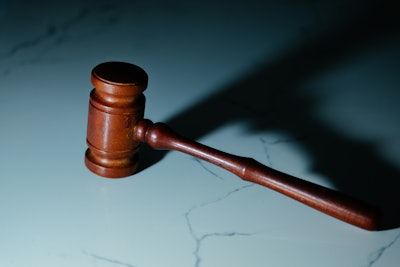
In a ruling Friday, Louisiana-based federal judge Brian Jackson denied the U.S. government its intention to categorically block international college athletes from obtaining the type of visas typically used by professional athletes.
As reported by Dan Murphy of ESPN, Jackson denied the U.S. Citizenship and Immigration Services request to dismiss a lawsuit filed by Arizona State University basketball player Last-Tear Poa.
"The judge's order does not resolve Poa's case but leaves the door open for her and many other international athletes to apply for a type of visa that would make it easier for them to make money on American soil while playing college sports," Murphy reported.
Poa, an Australian point guard who played her past three seasons at LSU, filed a lawsuit earlier this year after she was denied a P-1A visa, which is the document many international professional athletes use to make money while competing in the United States, per Muprhy's reporting. She is currently in the country on an F-1 student visa, which prohibits her from working while in the United States.
"College athletes are now allowed to be paid directly by their schools as well as by third parties for endorsement deals, but it remains unclear whether international athletes who accept those payments are putting their immigration status in jeopardy," Murphy wrote on Friday.
"It's a critically important issue because it's a real question as to whether or not students will be violating their status if they're competing in the NCAA and getting paid," said Amy Maldonado, who has represented Poa in her case along with fellow sports immigration attorney Ksenia Maiorova.
Lawyers for USCIS argued that an athlete must be in America "solely" for the purpose of playing their sport in order to receive a P-1A visa, and therefore a college athlete who is also in the country to get an education would not qualify. Judge Jackson disagreed with their argument.
Per Murphy, the case will now move forward to assess whether Poa meets the other qualifications needed to obtain the more professional visa, which include proving that she is an athlete who competes at "an internationally recognized level of performance."
"Maldonado said she believes that 'quite a few' college athletes would comfortably meet this definition, which means they might be able to accept NIL money while in the United State with significantly less legal risk in the future," Murphy wrote.




































